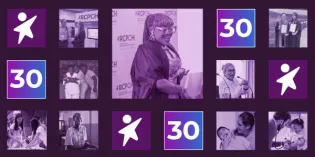Lead investigators
Dr Chris Gale
Reader in Neonatal Medicine, Imperial College London,
Consultant Neonatologist, Chelsea and Westminster Hospital NHS Trust
Professor Jenny Kurinczuk
Director, National Perinatal Epidemiology Unit
Director, NIHR Policy Research Unit in Maternal and Neonatal Health and Care
Nuffield Department of Population Health
University of Oxford
Old Road Campus, Headington
Oxford OX3 7LF
Email: bpsu-covid@ndph.ox.ac.uk
About the study
The SARS-CoV-2 coronavirus is a new virus that originated in China, where it was first recognised as a causing a new infection in late 2019. It has crossed the world and we started to see people affected by the virus in the United Kingdom in February 2020. Since this coronavirus is a new virus, no one has immunity to it.
We have very little information about how often babies get this coronavirus infection, whether it transmits from mothers to their babies while they are still pregnant, during labour and birth, or whether the infection occurs following birth. Carrying out research now will mean we can give the best care to mothers and babies and the best advice to pregnant women about the effects of coronavirus on them and their baby.
We are undertaking a national study collecting information about newborn babies who have coronavirus and need medical care or who are born to mothers who have coronavirus. We will be asking all paediatricians and neonatologists in the UK to report any babies that meet the surveillance case definition to the BPSU every week.
We are asking for weekly reporting of neonatal complications of coronavirus disease (COVID-19) because this is a public health emergency.
Further information on the study can be found here
Case definition
Any baby or infant:
That has a diagnosis of COVID-19 made on a sample taken before 29 days of age and receives inpatient care for COVID-19 (this includes postnatal ward, neonatal unit, paediatric inpatient wards, paediatric intensive care units)
Reporting instructions
Please report any neonate that meets the case definitions for neonatal complication of coronavirus disease (COVID-19).
Duration
March 2020 - March 2022 with a 6 month follow-up.
Funding
This study is funded through a grant from the Department of Health and Social Care (reference: PR-PRU-1217-21202)
Approval
This study has been approved by North East –Newcastle & North Tyneside 2 Research Ethics Committee Research Ethics Committee (reference: 20/NE/0107); HRA Confidentiality Advisory Group (reference: 20/CAG/0058);the Public Benefit and Privacy Panel for Health and Social Care (reference: 2021-0001 (aka 1920-0288)); and the Public Health Agency and Privacy Advisory Committee in Northern Ireland.
Privacy notice
The National Perinatal Epidemiology Unit (NPEU) at the University of Oxford is the sponsor and data controller for this research study. You can see the NPEU's privacy notice. The Data Protection Officer at the University of Oxford can be contacted by email: data.protection@admin.ox.ac.uk.
The study team based at National Perinatal Epidemiology Unit (NPEU) at the University of Oxford will use information from medical records for a medical research study. The lawful basis for collecting and using personal information in this study is article 6(1)(e) and article 9(2)(j) of the GDPR which allows us to process personal data when it is for scientific research in the public interest. We will collect information about neonates with complications of coronavirus disease (COVID-19). Doctors will not provide identifying information like names and addresses, but they will provide personal information like sex, ethnic group and date of birth. The smallest amount of personal information will be used. We cannot withdraw or remove information from the study but personal information will be deleted or de-personalised when the study finishes. The University of Oxford will securely store this information for 20 years.
If you want access to the information in your child’s NHS records, then you should contact your child’s NHS hospital/doctor.
If you want to find out more about how personal information is used in the study, please contact jenny.kurinczuk@npeu.ox.ac.uk.
If you wish to complain about the use of your personal information, then you should contact the Information Commissioner’s Office:
Information Commissioner’s Office
Wycliffe House
Water Lane
Wilmslow
Cheshire SK9 5AF
Helpline number: 0303 123 1113
Email: casework@ico.org.uk
Support group
Partners
Other forms of paediatric COVID-19 data collection
Public Health England is also conducting clinical surveillance in children aged 29 days to <16 years through an online questionnaire. Paediatricians managing children with confirmed COVID-19 can contact shamez.ladhani@phe.gov.uk for more information or, alternatively, report the case directly to phe.paedCOVID@nhs.net, and will receive an email link to complete the online questionnaire.








